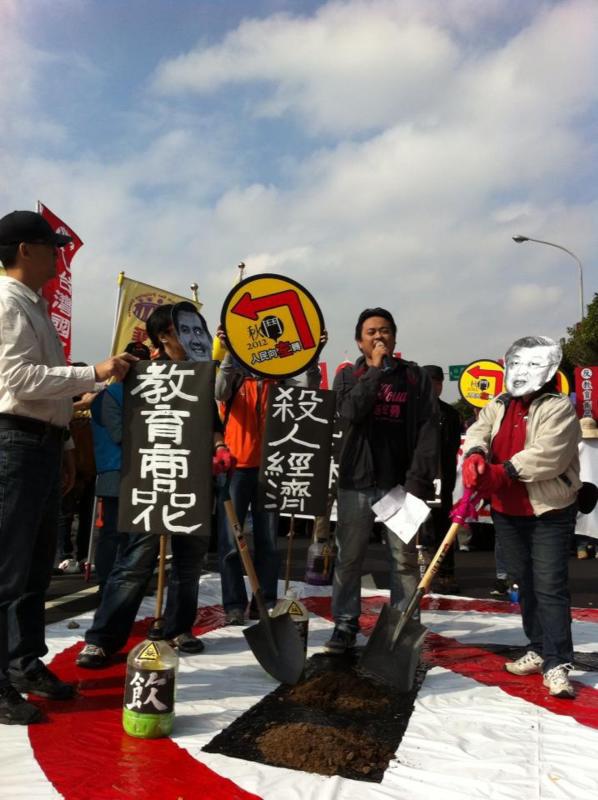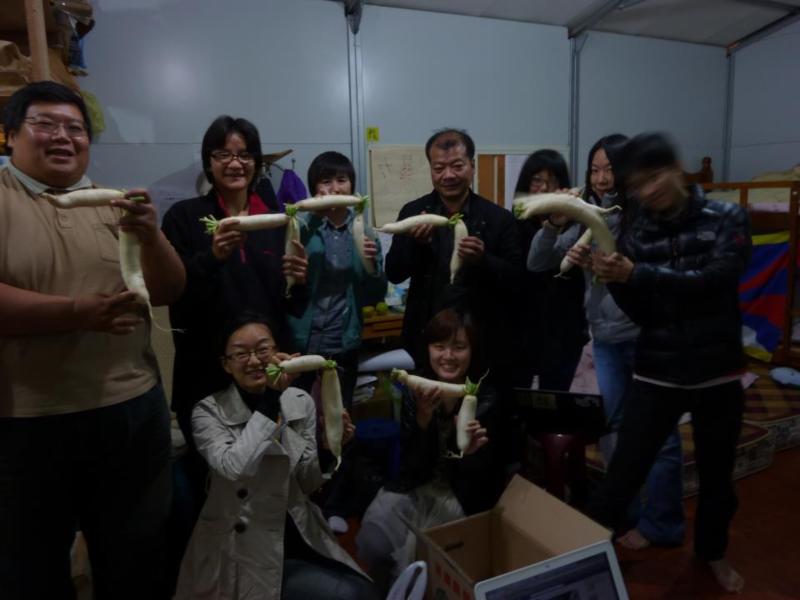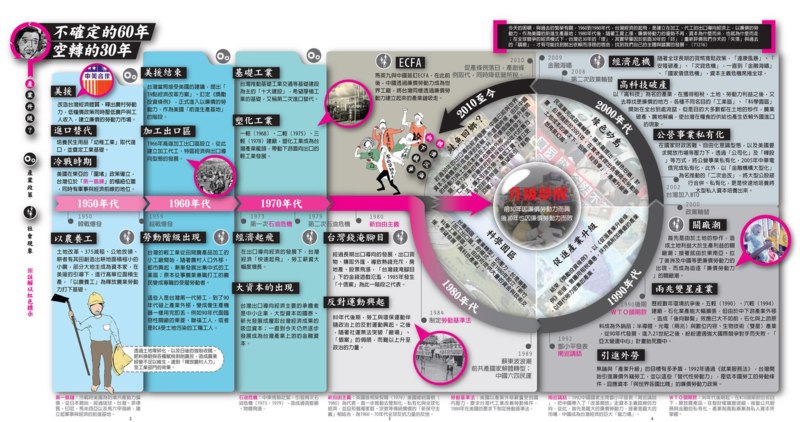
文 / 鐘聖雄
總統馬英九日前遭英國《經濟學人》(the Economist)評為「無能的笨蛋」(ineffectual bumbler),引起國內廣大迴響和爭辯。
在科學上,我們很難釐清馬英九到底笨不笨,但日前台灣有一項重要的研究發現登上了國際醫學期刊,指出台灣人在20年來都憂鬱症患者增加了一倍。該期刊更以專文評論警告,絕不要把台灣經濟奇蹟(Miracle )和幻象(Mirage)混為一談。換句話說,這兩篇國外期刊不約而同地告訴我們一件事 – 笨蛋!問題在經濟…不過代誌不是憨人所想的那麼簡單…
中研院特聘研究員鄭泰安統計台灣1990~2010年間的「常見精神疾病」盛行率,20年來以每5年為一間隔,一共蒐集了9,079份樣本,發現台灣焦慮、憂鬱症患者,已從1990年間的11.5%,上升到2010年的23.8%,成長率超過一倍。(中研院新聞稿)簡單講,幾乎每4個台灣人中,就有一個患有焦慮、憂鬱症狀。該研究指出,台灣人的焦慮和憂鬱,與不斷攀升的失業率和對生活的不確定感有關。此外,這項研究也發現,台灣人的焦慮、憂鬱症狀,和失業率、離婚率、自殺率呈現正相關。
這份研究資料被刊登在國際頂尖醫學期刊《刺胳針》(The Lancet)中,該期刊並以《The Progress of Nations: What We Can Learn From Taiwan》為題,提醒當權者不要盲目追求缺乏幸福感的GDP成長,卻放任勞動條件低下、失業率攀升所帶來的影響,還把經濟幻象(Mirage)誤認為經濟奇蹟(Miracle)而毫無自覺。
在這篇評論文章中,撰文者(David Stuckler, Martin McKee)首先稱讚台灣自1960年代以降有目共睹的經濟成長率,在亞太經濟危機、金融海嘯中也幾乎全身而退,並讚許台灣成功由獨裁專政轉型為多黨式民主。然而,該文話鋒一轉,隨即評論道:「台灣奇蹟,是建立在廣大民眾普遍升高的精神失調之上。」(the Taiwan Miracle has come to the substantial increase in prevalence of common mental disorders among its people)
該評論指出,這份憂鬱症相關研究最重要的訊息,或許是我們應該以更宏觀的角度,重新思考國家發展的定義。雖然我們經常以GDP作為衡量一切的指標,卻GDP永遠也無法衡量那些使我們覺得「活得值得」的項目,而諸如早已存在多年的真實發展指標(Genuin Progress Indicator;GPI)、永續經濟福利指標(index of Sustainable Economic Welfare;ISEW),還有幸福指標(Happiness Index)等等,也許更適合拿來作為評斷「國家發展」的參考依據。
此外,評論亦指出,台灣的財富分配越來越不均衡,而且所謂的財富、經濟發展,這些本來應該是作為人民追求幸福的手段,卻越來越與它自身以外的事物失去了連結。當手段成為目的本身,與真實失去了連結時,所謂的發展到底是為了什麼而存在呢?the Lancet的原文是這樣說的:
這項研究發現,台灣人民的不確定感來源,與整體失業率有正向相關,而這無疑證明了一件事情 – 當社會整體經濟衰敗之時,人民在丟掉飯碗之前,很可能就會先賠上健康;對不確定性的恐懼,和失業本身存在同樣的影響力。這份評論文章在末了時指出,我們現在已經有方法追蹤人民的不確定感和健康、福利的關連性。這份來自台灣的研究報告,很清楚地告訴我們何以這些方法有其必要,以免我們把奇蹟(Miracle)和幻象(Mirage)混為一談了。撰文者寫道 - 一名偉大的領導者,應該致力於讓他的人民感到安心,而非讓他們感到恐懼。
註:2006年時,台灣在「幸福星球指數」(Happy Planet Index)排名中,是178名中的第84名,勉強算是中段班。2009年,台灣已經不在這份排行榜上。今年一月,馬政府說,我們要來弄一份專屬於自己的幸福指標。
http://www.economist.com/news/asia/21566657-former-heart-throb-loses-his-shine-ma-bumbler
Taiwan politics
Ma the bumbler
A former heart-throb loses his shine
Nov 17th 2012 | TAIPEI | from the print edition
WHEN he was first elected in 2008, Taiwan’s president, Ma Ying-jeou, offered Taiwanese high hopes that the island’s economy would open a new chapter. He promised ground-breaking agreements with China to help end Taiwan’s growing economic marginalisation. At the time, Mr Ma’s image was of a clean technocrat able to rise above the cronyism and infighting of his party, the Kuomintang (KMT). He was a welcome contrast to his fiery and pro-independence predecessor, Chen Shui-bian, now in jail for corruption.
Five years on, and despite being handily re-elected ten months ago, much has changed. In particular, popular satisfaction with Mr Ma has plummeted, to a record low of 13%, according to the TVBS Poll Centre. The country appears to agree on one thing: Mr Ma is an ineffectual bumbler.
Ordinary people do not find their livelihoods improving. Salaries have stagnated for a decade. The most visible impact of more open ties with China, which include a free-trade agreement, has been property speculation in anticipation of a flood of mainland money. Housing in former working-class areas on the edge of Taipei, the capital, now costs up to 40 times the average annual wage of $15,400. The number of families below the poverty line has leapt. Labour activists have taken to pelting the presidential office with eggs.
Exports account for 70% of GDP. So some of Taiwan’s problems are down to the dismal state of rich-world economies. Yet Mr Ma’s leadership is also to blame. He has failed to paint a more hopeful future, with sometimes hard measures needed now. Worse, he frequently tweaks policies in response to opposition or media criticism. It suggests indecisiveness.
Public anger first arose in June, when Mr Ma raised the price of government-subsidised electricity. Few Taiwanese understood why, even though Taiwan’s state-owned power company loses billions. In the face of public outrage, Mr Ma postponed a second round of electricity price rises scheduled for December. They will now take place later next year.
People are also worried that a national pension scheme is on course for bankruptcy in less than two decades. Yet Mr Ma cannot bring himself to raise premiums sharply, because of the temporary unpopularity it risks. When Mr Ma does try to appeal to Taiwanese who make up the island’s broad political centre, it often backfires with his party’s core supporters. Following public grumbles that retired civil servants, teachers and ex-servicemen were a privileged group, the cabinet announced plans to cut more than $300m in year-end bonuses, affecting around 381,000. The trouble was, veterans are among the KMT’s most fervent backers. Now some threaten to take to the streets in protest and deprive the KMT of their votes until the plan is scrapped. Meanwhile, Mr Ma’s clean image has been sullied by the indictment of the cabinet secretary-general for graft.
Cracks are starting to grow in the KMT façade. Recently Sean Lien, a prominent politician, criticised Mr Ma’s economic policies, saying that any politician in office during this time of sluggish growth was at best a “master of a beggar clan”—implying a country of paupers.
But the next election is four years away, and presidential hopefuls will not try to oust or even outshine Mr Ma anytime soon. After all, they will not want to take responsibility for the country’s economic problems. Nothing suggests Mr Ma’s main policies will change (or that they should), but his credibility is draining by the day.
from the print edition | Asia
台灣宗痛因某項童叟皆知的特質,甫獲國際認證,提高不少國家能見度。地球另一端的烏拉圭(Uruguay)政治人物,也因頂著「全世界最貧窮的總統」的光環而揚名立萬。兩相對照不勝稀噓 。走訪烏拉圭總統Jose Mujica的「官邸」,你會瞧見古舊搖晃的農舍,屹立在草木蕭索的荒郊。待洗衣物置放屋外雜草叢生的井邊。堂堂一國之尊身邊只有兩名侍衛和2隻瘸腿的狗兒,看守戶外。Jose Mujica的生活方式和其他世界領袖天差地別。 Mujica總統放棄烏拉圭政府給予的豪華官邸,棲居在妻子位於首都Montevideo.的農舍。通往農舍的是一條爛泥巴公路。 Jose Mujica自嘲:「我看上去像糟老頭。但這是我的選擇」。
總統和夫人一起養花蒔草。簡樸過生活。事實上Mujica將月俸(相當於1.2萬美元)的九成捐給慈善團體(不是從國務機要費挪支)―這讓他成為世上最散赤的總統。「我大半輩子如此過,以我的收入,過得可以了。」他的捐款-救助窮人和小企業主-他的收入粗估,達到烏拉圭的小康收入(775美元)。 2010年,他的年度財富申報為1千800元美元―約一部1987年國民車的要價。今年,他增持一半妻子的資產-房產、農作機具-增至21.5萬美元 這只是副總統申報財富的三分之二,前總統的三分之一。Mujica在2009選舉中成為總統。上世紀60年代,Mujica曾是左翼Tupamaros游擊隊一員。該組織受古巴革命感召而成立。他曾遭槍擊6次,作牢14年。多數時間,他都與世隔絕,直到1985年烏拉圭民主改革才獲釋。Mujica蹲監獄的日子,養成現今的生活習慣。他說:「我被叫作 'the poorest president' 但我不覺得窮。貧窮的人倒是那些死命豪奢,欲望無窮的人。如果你不擁有很多物欲,你就不為財貨當奴隸,你可以很自由。」
今年6月,Mujica在巴西峰會發表談話:「我們一下午在談論可持續發展和拯救貧窮。但我們安什心?我們想仿傚富國的發展和消費嗎?我問你:如果原住民的汽車擁有率等同德國人,那會發生什麼事?我們會還剩下多少乾淨的空氣? 」「如果地球上70億人都消耗與先進國家的同樣多的資源,地球的資源足夠嗎?正是高耗能嚴重威脅地球。」 Mujica譴責其他國家領導人頭殼歹去。 一名烏拉圭民調人員表示:「許多人欣賞 Mujica總統的清廉寡欲。但這不會阻止人們批評他的治理。」烏拉圭在野人士說,國家最近的經濟蓬勃,並無改善醫療和教育的困境。自2009年大選至今,Mujica的滿意度第一次沒過半。 其實,Mujica不須擔心滿意度的問題―依烏拉圭法律,他已不能參加2014年的選舉。年事已高(77歲)的他,沒有綠卡,當他步下政壇後,可領取國家退休金(肯定無18趴優渥)與愛妻歸隱鄉野,滄海一聲笑,淡泊以終。 (取材BBC)















